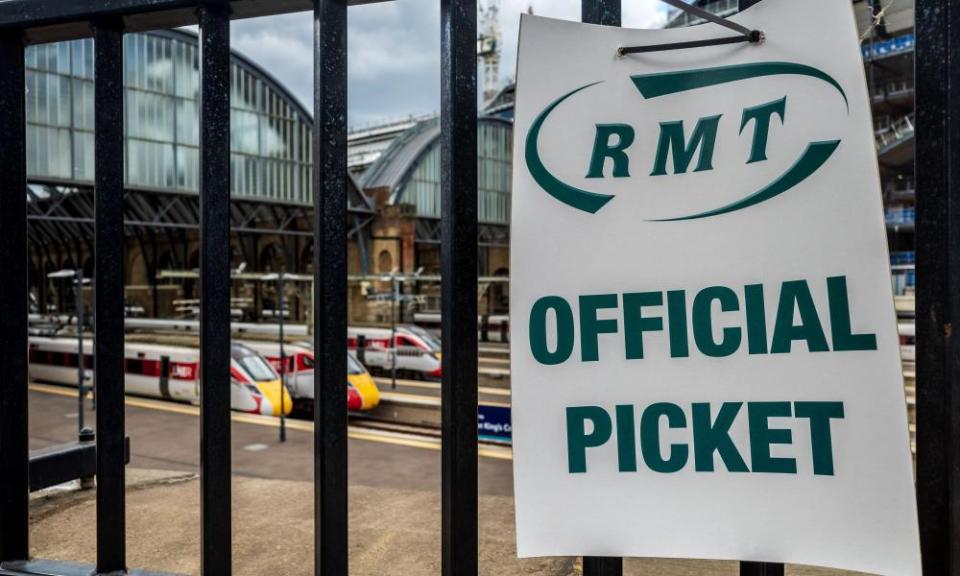Network Rail boss compares year of strikes to Iraq war

The boss of Network Rail has compared the past year of train strikes to the Iraq war, saying rail leaders need to “build the peace” with workers in a way that British and US victors over Saddam Hussein failed to do.
Andrew Haines, the chief executive of the body responsible for Britain’s railway infrastructure, said the “warfare” was over but the lessons of Iraq were “ringing in his ears”.
Although unions have not reached a deal with train operators, where strikes continue, the RMT ended hostilities with Network Rail on Monday. The union’s members voted by three to one to accept a 9% pay deal in a referendum, after more than nine months of on-off strikes.
Related: Rail strikes: RMT votes to accept Network Rail pay offer
Now, Haines said, his “priority was to build the peace with our workers, colleagues and stakeholders who see the railway as dysfunctional”.
Haines said he had been listening to the Rest is Politics podcast, hosted by Alastair Campbell, a key Downing Street figure at the time of the 2003 Iraq war, and Rory Stewart, who became a governor of part of post-invasion Iraq.
Recalling the overthrow of Saddam’s regime, Haines told a rail conference in London: “Whatever you think about the invasion, everyone would say that [there was] a failure to build the peace.”
“That rings in my ears,” he said, adding that progress could not happen “unless we build the peace after these big events, with the workers”.
Haines said the strike had ended with a sub-inflation deal, one of the best from the employers’ view in many years, because “the shareholder, the government was prepared to tolerate more pain than in the previous 14 years” in terms of disruption and lost revenue.
Haines said a deal “was close” months ago. He said the long industrial standoff, during which Network Rail pushed ahead with modernisation reforms, had featured it telling the RMT “you don’t hold us to ransom” and that unions “don’t have a right of veto”, which he said was “a seismic moment”.
However, instead of an Iraq-style de-Ba’athification of the railway, Haines said it would not be “turning our backs on constructive union partnerships or demonising people”.
He said a recovery process was “not easy when there’s pain”.
But, Haines added: “It’s been painful, it’s going to be long, but we start much better than if we’ve made some shabby compromise – which all too often happened in the past, partly because government or shareholders didn’t want to take that pain.”
The RMT declined to comment.

 Yahoo Finance
Yahoo Finance 